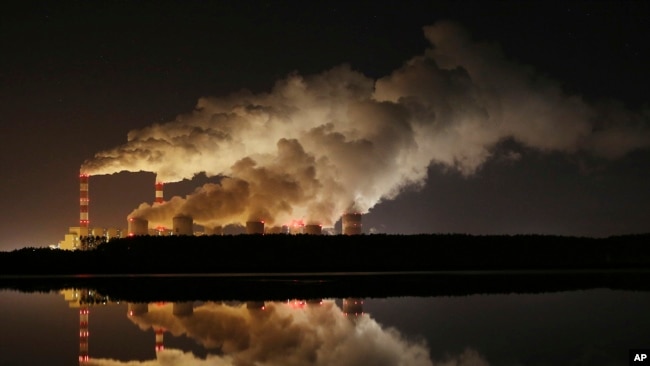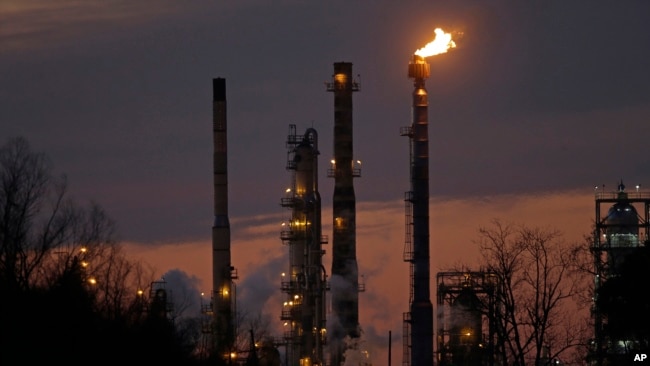For the first time, a group of the world’s top oil companies have set goals to cut carbon gas emissions as a percentage of their total production.
Among the businesses agreeing to the effort were Saudi Aramco, China’s CNPC and the American company ExxonMobil.
The targets are the idea of an industry-led group, called the Oil and Gas Climate Initiative, or OGCI. Its 12 member companies are responsible for over 30 percent of the world’s oil and gas production.
The goals are based on what the OGCI members call “upstream carbon intensity.” The target represents a reduction in production of between 36 and 52 million metric tons of carbon dioxide equivalent by 2025, the OGCI said in a press release. The organization estimates the reduction would be equal to the carbon dioxide emissions resulting from energy use in 4 to 6 million homes.
The intensity targets mean that total carbon emissions can still rise as production increases.
OGCI’s chairman is Bob Dudley, a former chief of the London-based oil and gas company BP. He told Reuters news agency that while the agreement represents an important “milestone,” it does not represent the end of efforts to reduce emission levels.

FILE - Plumes of smoke rise from Europe's largest lignite power plant in Belchatow, central Poland, Nov. 28, 2018.
“We’ll keep calibrating as we go forward,” Dudley added.
The agreement came after the OGCI’s European members individually announced plans for even deeper cuts. Among the companies setting those targets were BP, Royal Dutch Shell and Total.
The OGCI members agreed on a common methodology to measure carbon intensity. Dudley said the targets could be extended in the future to other areas, such as liquefied natural gas and refining operations.
London-based research group Carbon Tracker dismissed the OGCI’s claims that the targets met those of the 2015 Paris agreement to limit global warming.
Carbon Tracker’s Andrew Grant said in a statement that “Having some targets to reduce carbon pollution is better than none.” But he added that the oil and gas industry can never be “aligned” with the Paris goals when the industry plans include continuous investment in fossil fuel production.

FILE - Stacks and burn-off from the ExxonMobil refinery are seen at dusk in St. Bernard Parish, Louisiana, Feb. 13, 2015.
The announcement marks a major change for ExxonMobil, the largest oil company in the United States. Exxon has resisted pressure from investors to be more open about the environmental effects of its products. The company has yet to report its carbon emissions for 2019.
A spokesman for Exxon said it supports the OGCI targets and is “part of the industry’s efforts to take practical, meaningful steps to reduce emissions.”
The goals set by individual companies can differ widely in definition and structure, making comparisons difficult. But the targets of some individual OGCI members are already higher than those set in the new agreement.
OGCI said the group’s collective carbon intensity would be reported once a year and the data would be examined by an independent group.
Words in This Story
emission – n. the act of sending gas, heat or light out into the air
equivalent – adj. having the same amount, value, quality etc.
per – prep. used when expressing rates, prices or measurements
calibrate – v. to mark units of measurement on an instrument so that it can measure accurately
refine – v. make a substance pure by removing unwanted material
global warming – n. a gradual increase in world temperatures caused by gases such as carbon dioxide
align – v. support a particular group or cause
fossil fuel – n. a fuel, such as coal, oil, or natural gas, that is formed in the earth from dead plants or animals
practical – adj. relating to experience or real situations rather than ideas or imagination
data – n. information, especially facts or numbers, collected to be examined and considered in a decision-making process